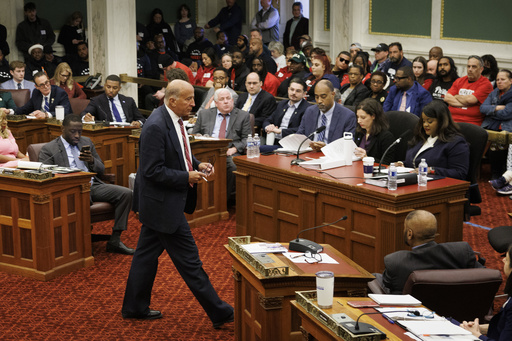
PHILADELPHIA — On Thursday, the Philadelphia City Council granted approval for a $1.3 billion downtown arena for the Philadelphia 76ers, despite significant opposition from residents of Chinatown and various activist groups.
The council’s decision came during a packed session at City Hall, with a vote tally of 12-5. The NBA team aims to relocate to the new venue, 76 Place, by the year 2031. Nonetheless, opponents of the project assert that their resistance will persist.
Mayor Cherelle Parker, a Democrat who has been a strong proponent of the initiative, stated that this project will bring widespread benefits throughout the city, referring to it as a “historic game-changing economic development project.”
Proponents of the arena believe that the 18,500-seat facility could rejuvenate the struggling retail strip known as Market East, which spans from City Hall to the Liberty Bell. This area has faced economic challenges for years, despite various redevelopment attempts.
The team’s owners, Harris Blitzer Sports & Entertainment, are eager to terminate their lease with Comcast Spectacor at the Wells Fargo Center in South Philadelphia. They have been pushing for city approval by the end of the year to stay on track for their desired opening date.
Additionally, the owners committed to not seeking any city funding for construction and plan to rely on state and federal resources instead. They intend to implement approximately $6 million in annual Payments in Lieu of Taxes instead of traditional property taxes.
During the council meeting, protesters who formed a human chain on the floor delayed proceedings, asserting their intent to continue opposing the project.
Mohan Seshadri, an opponent and member of the No Arena Coalition who is also the executive director of the Asian Pacific Islander Political Alliance, criticized the council’s support of the proposal, claiming they acquiesced to the demands of wealthy stakeholders under pressure from a fabricated timeline.
Concerns among opponents include potential traffic congestion on game days, the risk of the arena being underutilized at times, and fears of gentrification leading to increased rental prices in the vicinity.
The Chinatown community has faced numerous development challenges since the 1960s, including proposals for casinos, a prison, a baseball stadium, and a highway, which ultimately fragmented the neighborhood upon its introduction in 1991.
In light of the project, council members approved 11 separate bills on Thursday addressing various matters such as zoning modifications, land transfers, public safety, and additional concerns necessary for the 76ers’ initiative.
